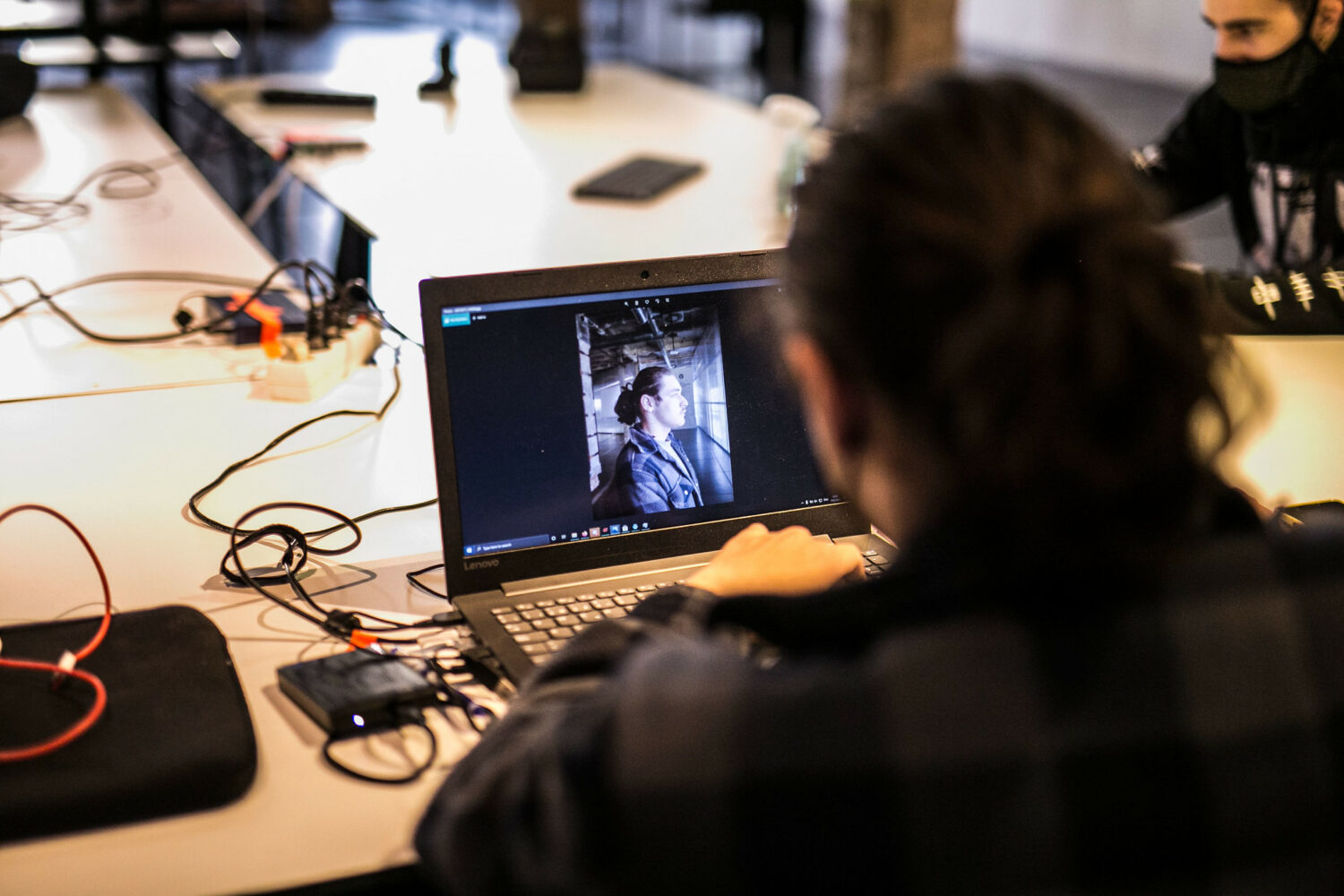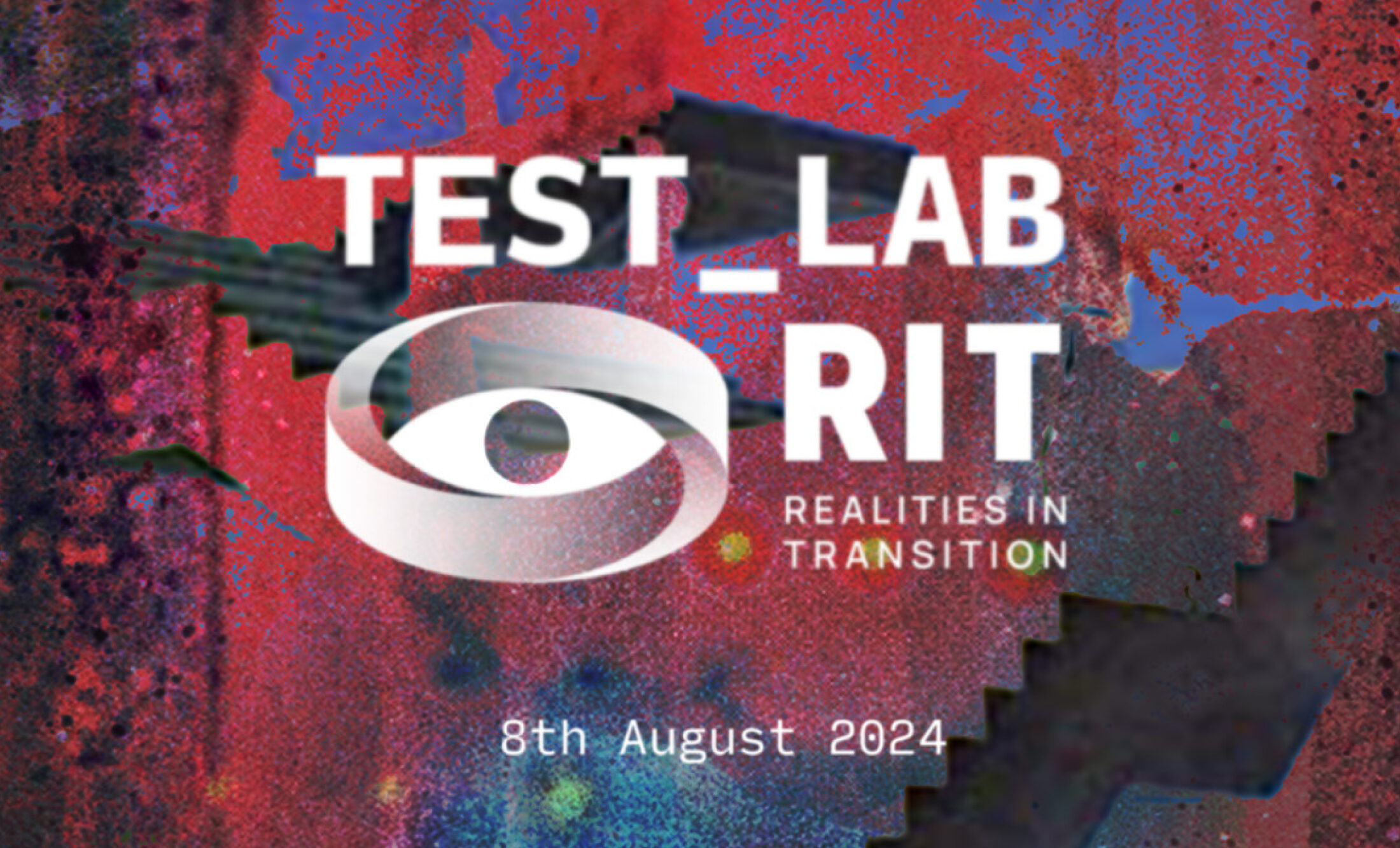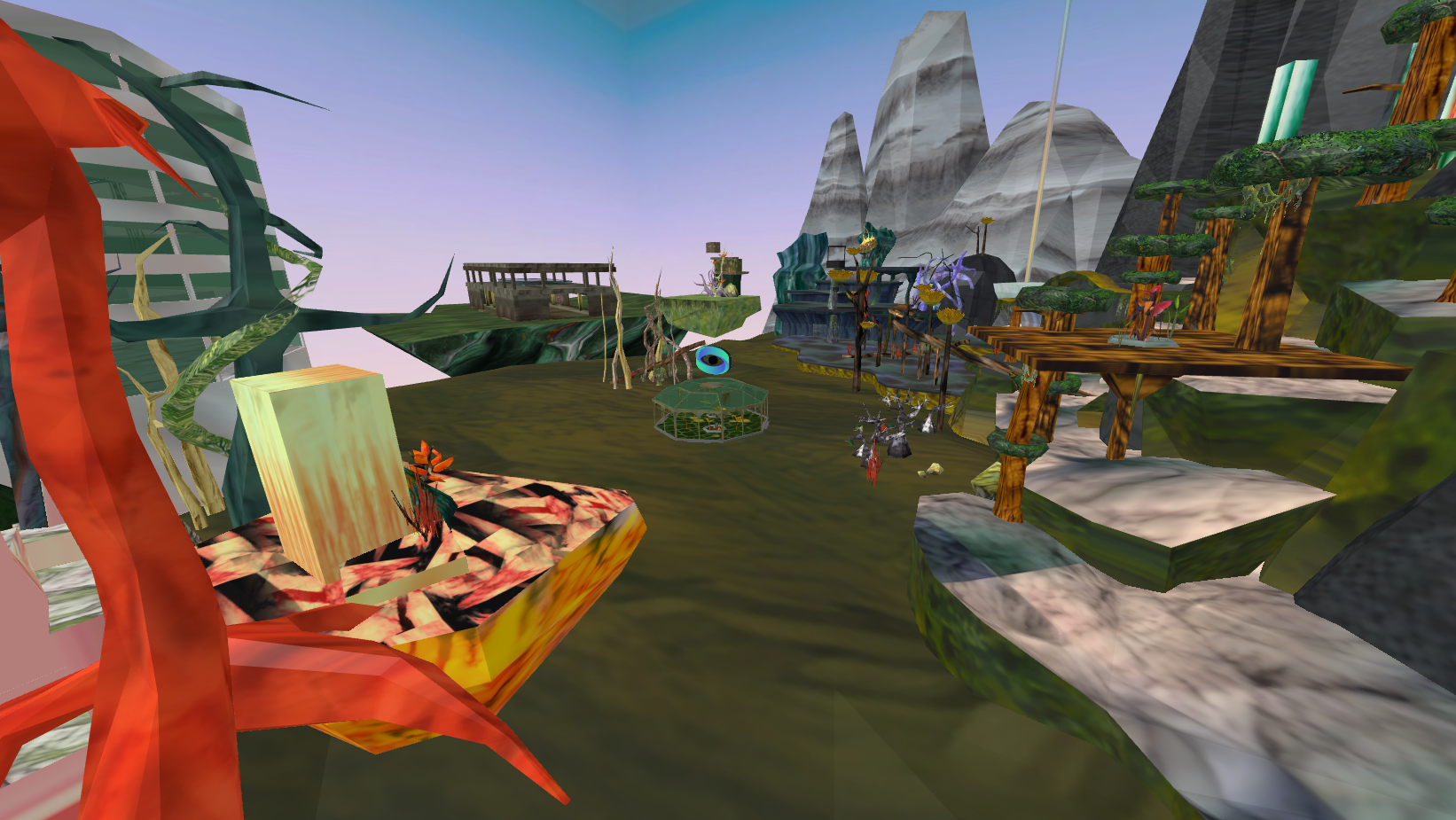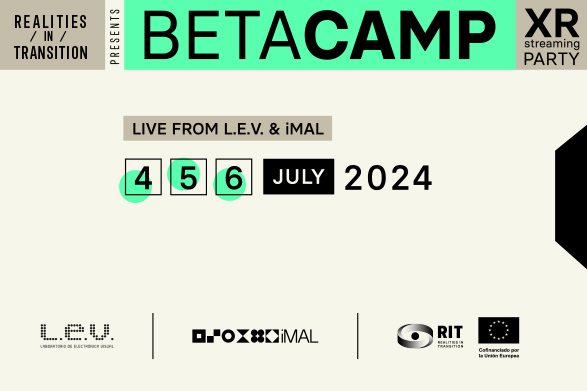XR Camp Hackathon Recycling the AI
A hackathon is an event where people engage in rapid and collaborative engineering over short period of time. They facilitate interdisciplinary work by grouping some people with different skills in order to solve a given challenge. The goal is to provide a working product by the end of the event, being the best solution awarded with some recognition. This particular hackathon, happening during the first XR Camp organised in the context of Realities in Transition, aims to engage young students on critical thinking about Extended Realities (XR).
Virtual, mixed and augmented reality, are a becoming more relevant in the creative and artistic fields, helping artists to explore virtuality as an alternative domain for creativity and expression. Like any other digital work, extended realities have also being influenced in the last years by the evolution of tools powered by artificial intelligence (AI). Being a great tool, the AI has also gain lots of criticism when applied to the creative field. Digital artists, for example, consider an unfair competition that neural network models that have being trained using their previous work, are being used without their consent to generate new 3D models and designs automatically using text to content techniques. Recently, there has being a notorious strike of writers in the Hollywood industry to, among other things, request a regulation of the use of AI powered scripts for films and TV shows.
Considering also the amount of resources needed to generate AI digital content, and the fact that the internet is full of already existing AI images, texts, 3D models, videos and animations, it is more than reasonable to think on recycling those before beginning to think of generating new ones. The proposal for this hackathon is thus, experiment with reusing and repurposing techniques of already existing digital content to develop them into functional virtual worlds.
By learning the basics of HTML and with the use of 3D editing tools, attendants will be able to design virtual environments and host them for their own use while, at the same time, help them reflect about issues like energy consumption, privacy, open culture, digital representation and accessibility. During these three consecutive days, thirty students of the School of Applied Arts and Design of Zagreb will put their skills to work to create a working prototype of several virtual scenes with A-Frame, an open source library for building 3D spaces easily on the browser.






